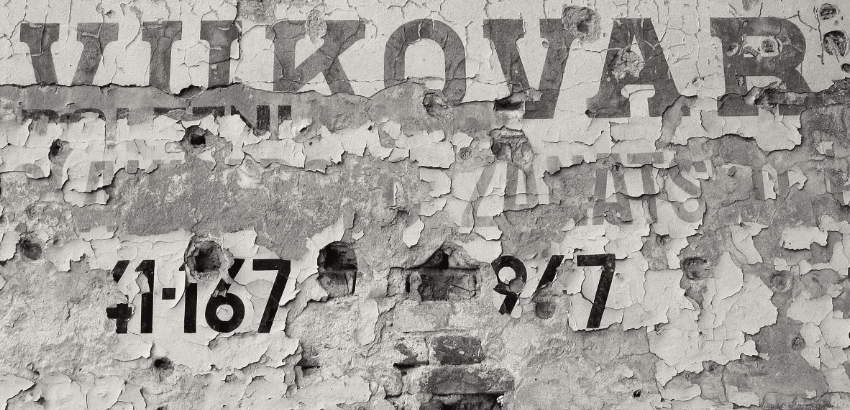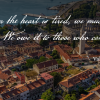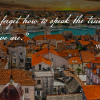
Published: November 15, 2001
View the Original Newsletter: Iskra-95.pdf
About This Issue
Marking the tenth anniversary of the fall of Vukovar, this issue of Iskra is one of the most emotionally charged to date. Valentina Krčmar writes about her recent trip to Croatia, her attempt to interview Prime Minister Ivica Račan, and her disappointment at how diaspora voices are treated by the government. The paper also features a historic reprint of journalist Siniša Glavašević’s final interview, conducted days before his death at Ovčara.
The edition blends remembrance, journalism, and cultural pride — a tribute to both those who died and those still striving to keep Croatia’s memory alive.
Editorial: “A Missed Conversation with the Prime Minister”
Returning from Croatia, Valentina describes the beauty of the homeland and the warmth of its people — but also the bitterness of disillusionment with official attitudes toward the Croatian diaspora.
She recounts how she was promised an interview with Prime Minister Ivica Račan at the opening of the Sv. Rok tunnel but was later dismissed by his press secretary:
“They told me to send questions by fax and that the answers would come in writing. But how can I know those words would be his and not hers?”
Iskra-95
Her frustration is clear: after years of reporting on Croatia from Canada — including hosting Račan and Budiša during their Toronto visit — she felt the diaspora’s respect had been betrayed.
“It hurts that we were treated as insignificant — as if these pages and our voices don’t matter. Every Croat abroad deserves to be heard.”
She links the incident to a wider trend of indifference toward Croatians abroad, noting that many government officials skipped the 10th-anniversary celebration of DORA, even though most of its funds came from emigrants.
“In Zagreb, they still don’t understand that our community is part of Croatia too.”
Valentina closes her editorial with a sharp but dignified farewell to Račan:
“Perhaps one day he’ll realize how many friends he lost by not finding five minutes for those who love their homeland from afar.”
Feature: “Vukovar — Ten Years After the Fall”
This section revisits Vukovar through eyewitness accounts, memorials, and testimonies, marking a decade since the city’s destruction. It includes one of the last recorded conversations with Siniša Glavašević, a radio reporter who was murdered at Ovčara after the fall of the city.
“Zagreb lies when it says it cannot reach us by telephone,” Glavašević told his interviewer from the besieged city. “We speak more easily with Toronto than with Zagreb.”
He described the horror of Vukovar’s final days — over 300 wounded in the hospital, no supplies, no blood, and constant bombardment by Serb forces:
“Europe and the world have not seen so much death and ruin in a long time.”
When asked whether help was coming, his response was quiet and devastating:
“They call us heroes — and that’s all.”
Iskra-95
Valentina introduces the interview as a “voice from the grave,” a reminder that Croatia’s freedom was bought with blood and should never be forgotten.
Community News from Canada
Despite the somber tone, the issue also highlights Croatian life in Ontario:
-
Hrvatsko Društvo Bosiljevo celebrated its 30th anniversary with a Martin’s Day banquet in Mississauga, attended by hundreds from Hamilton, Niagara, and Windsor.
-
Hrvatsko Društvo Međimurje held its annual meeting and donated $3,000 to the Children’s Home in Čakovec, with plans to continue monthly support for orphans and disabled youth.
-
Letters of thanks poured in from readers in Hamilton and Mississauga, praising Iskra as “a social food we can find nowhere else.”
-
Governor George H. Ryan of Illinois sent an official congratulatory letter honoring the fourth anniversary of Hrvatska Iskra as “a vital link to Croatian heritage.”
Iskra-95
Health Feature: “The Miracle of Aloe Vera”
A lengthy article celebrates the ancient healing plant aloe vera, praised since the days of Cleopatra and Hippocrates. It explains its two main forms — the gel from the inner leaf and the yellow juice containing aloin — and their benefits for wounds, skin conditions, digestion, and immunity.
“Aloe heals without being a drug; it strengthens the body to defend itself.”
Readers are cautioned to start slowly and inform their doctors if taking other medications.
Culture and Heritage: “Vučetić’s Daughters”
This piece celebrates the life of Mira Vučetić, a pioneer of Croatian domestic education and founder of Zagreb’s Housekeeping School in 1912. Her students carried forward her teachings for decades, preserving Croatian culinary tradition through hand-written recipe books and community courses.
Traditional recipes like zlijevanka (cornmeal pudding) and vanilin kiflići (vanilla crescent cookies) are reprinted with nostalgia and love for heritage kitchens.
“Every family that bakes from these old notebooks keeps Croatia alive at its table.”
Closing Reflections
Valentina ends the issue with a call for courage and normalcy amid the post-9/11 fear and economic recession:
“If we stop living fully, the terrorists have won. Let us keep traveling, building, and believing.”
She dedicates the edition to the victims of Vukovar and to all Croatians who refuse to forget.
“Light a candle for Vukovar — and for every heart that still beats for Croatia.”




